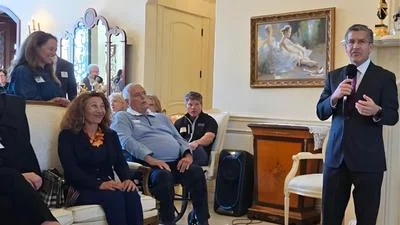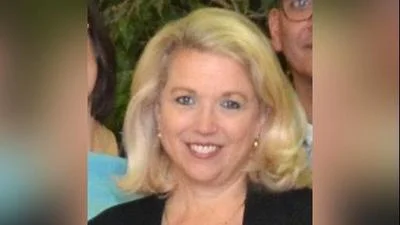Legislators in Springfield should challenge township government opposition to property tax freezes, a Wilmette Public District 39 School Board member said during a recent interview.
"Ask them why they are in opposition as again, the legislation would simply take away the power for the local governing bodies to increase taxes without asking their residents first if they agree with the need to," Tracy Kearney, who represents Wilmette Public Schools District 39 and is a member of the board's Facilities Development and Strategy committees, said in a North Cook News email interview. "Additionally, it would be helpful if lawmakers, specifically state legislatures, provided expense relief to local governing bodies at the same time through the elimination of local government subsidies and unfunded mandates."
Kearney noted that she is speaking on behalf of herself and not on behalf of the board.

Township Officials of Illinois Executive Director Bryan Smith
Kearney cited, as an example, a local government subsidy that school boards receive to cover teacher pension obligations.
"Specifically, the local school district is only responsible for part of a teacher’s full salary and benefit package," she said. "As the school district is only responsible to pay the salary for a teacher out of their local revenues, and the state is responsible for paying the pension obligation tied to a teacher’s salary via a percentage of the teacher’s highest salary earned in a year, residents outside of a specific school district’s boundaries are on the hook to subsidize the salary payment decisions made by governing bodies they had absolutely no influence on."
With Illinois' units of local government numbering about 7,000 - more per capita than any other state in the U.S. Illinois - and the state enduring the highest overall tax burden, township government opposition to property tax freezes have a tangible effect on local economies.
"It affects home values," she said. "As property taxes rise, the ability for those to afford homes decreases, therefore demand slips and values decrease."
Kearney's comments came after a failed amendment to an existing state Senate Bill, SB 851, that would have implemented a two-year property tax freeze for Cook and some collar counties, leaving other counties to decide whether freeze property taxes in voter referendums. SB 851 passed out of the House Revenue & Finance Committee on Nov. 2 with a recommendation it be adopted but the amendment was withdrawn and the bill passed the House.
Prior to House action, Township Officials of Illinois Executive Director Bryan Smith issued an "urgent legislative alert" about the amendment. Other Illinois counties would have been left to freeze property taxes via voter referendum.
"This would mean for those townships/road districts in those counties, this year and next year, your extension limitation would be zero percent unless voters approve an increase," Smith said in the alert. "In all other counties outside of Cook and the collar counties, the amendment, if passed, would allow a county board to place a referendum on the ballot in 2018 to have a property tax freeze for all local governments within that county for 2018 and 2019; or whether to have all local governments within the county subject to a property tax freeze for 2018 and 2019 AND then subject to the Property Tax Extension Limitation Law (PTELL) for levy year 2020 and thereafter."
Kearney said she did not understand why township governments would oppose a property tax freeze.
"SB 851, and all previous property tax freeze legislation proposed over the last few years, has simply advocated for allowing the electorate, the constituents, to raise property taxes via referendum after their local governing bodies have asked them to do so and after they have made the argument to do so," she said.
"In short, while the property tax legislation proposed over the last few years have differed in detail - some provided for expense reduction to compensate for the potential revenue reduction while others have provided for revenue reduction, without expense reduction and at the same time allowed for tax freeze exemption to continue to provide more funding for debt payments and pension obligation - all have advocated for more local control and transparency in necessity. At least they have appeared to, as the legislative proposals have simply eliminated the local governing bodies ability to raise taxes up to 5 percent or at the rate of the Consumer Price Index plus new property growth, whichever is lower, automatically, without first asking the electorate or making the case for the levy extension, tax increase."






 Alerts Sign-up
Alerts Sign-up